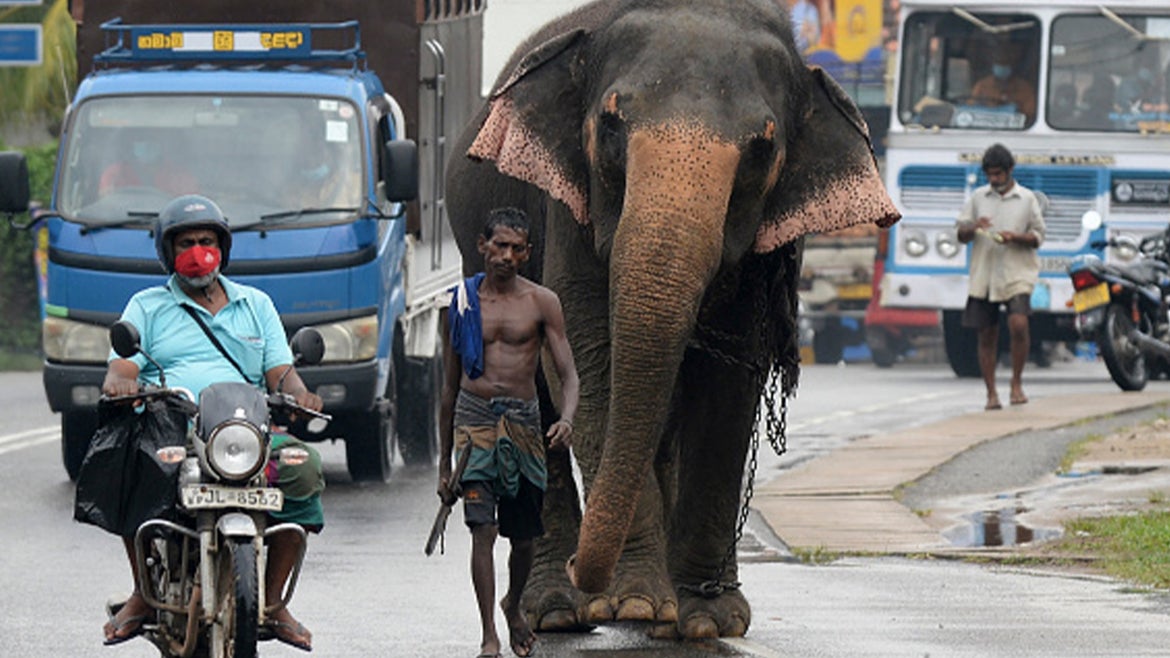Those who do not follow the new rules will have their elephant taken away and can face up to three years behind bars, officials said.
A new animal protection law in Sri Lanka bans driving under the influence when riding an elephant. Those who do not follow the new rules will have their elephant taken away and can face up to three years behind bars, officials said.
On Thursday, Wimalaweera Dissanayaka, the State Minister of Wildlife Protection, announced the new regulations that are applied to every person who owns or has in custody an elephant, according to The Gazette of the Democratic Socialist Republic of Sri Lanka.
“The person who owns or has the custody of such elephants shall ensure that the mahout [person riding the elephant] is not consuming any liquor or any harmful drug while employed,” Dissanayaka said.
Owning an elephant is a form of status in the country, with many wealthy Sri Lankans, including Buddhist monks, keeping them as pets, but there have been complaints of mistreatment and even cruelty, to some, the Associated Press reported.
Currently, there are about 200 domesticated elephants in the South Asian nation, with the population in the wild estimated at about 7,500, official records show, the AP wrote.
The new law will require all owners to ensure that animals under their care have new photo identity cards with a DNA stamp.
New guidelines were also put in place for working elephants. For instance, logging elephants can no longer work more than four hours a day and working nights is prohibited. Baby elephants are not allowed to be separated from their mothers and are no longer allowed to work, including in cultural pageants. And, owners must ensure that their elephants get a medical check-up every six months.
These new rules apply to the tourism sector, as well. No more than four people are now allowed to ride an elephant at one time. Those riding the animal are also required to sit on a well-padded saddle, the Agence France Presse reported.
Elephants are no longer allowed to be used in film or media, except for state production, where strict veterinary supervision is required, The New York Post reported.
Those who violate the new law will have their elephant taken into state care and could face jail time. And, capturing or killing a wild elephant is a criminal offense that could be punishable by death, authorities said.






